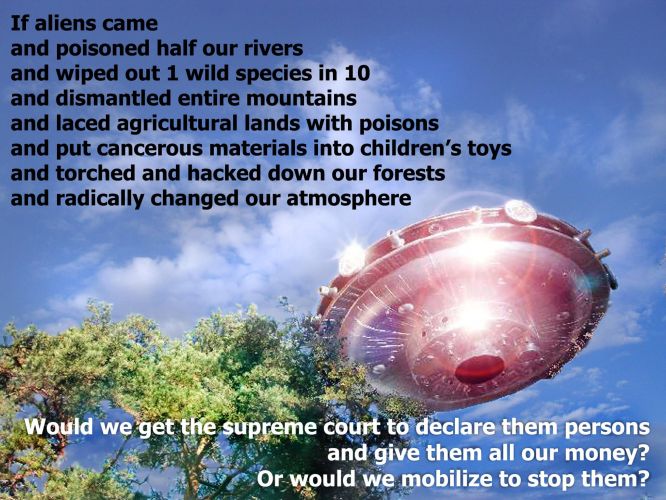Quantum Windbag
Gold Member
- May 9, 2010
- 58,308
- 5,099
- 245
- Thread starter
- #241
You struck out on this one. If you look through the law, you'll see Congress gave the EPA wide authority in defining air pollutants and the court agreed. Pollutants are not limited to just suspended matter. In a 5-4 decision in Massachusetts v. Environmental Protection Agency, the Supreme Court held that greenhouse gases fit well within the Acts capacious definition of air pollutant. The Act defines "air pollutant" as "any air pollution agent or combination of such agents, including any physical, chemical, biological, radioactive . . . substance or matter which is emitted into or otherwise enters the ambient air".
http://www.gpo.gov/fdsys/pkg/USCODE-2008-title42/pdf/USCODE-2008-title42-chap85.pdf
Does that make oxygen and nitrogen pollutants, or does it mean you don't fracking know what you are talking about?
Even if we define normal atmospheric gases as pollution, the process did not work the way you described because the EPA specifically decided that there was no need to regulate tailpipe emissions that included them. That makes your description of the process wrong.
I was not suggesting that the federal government had that authority. I was trying to illustrate that when a law is passed, regulations may be required because there're isn't enough detail for implementation.
Regulations might be required because Congress doesn't actually do its job?
Some regulations such as those protecting endangered species may not be in the best interest of businesses and their customers because the purpose of the regulation and underlying law are to preservation wildlife for the benefit of current and future generations. Regulations that limit hazardous material dumping and preservation of natural resources, transportation of hazardous materials, and use of airspace are there to protect the public, not to increase corporate profits.
Funny, the Sierra Club is a corporation that makes a lot of money off of the Endangered Species Act, and there are corporations that make millions off of dealing with hazardous waste. Just because laws do not benefit the corporation you are looking at does not mean that it doesn't benefit a corporation.
However, that is certainly not the case with all regulations. Brokerage and bank customers would certainly not be better off without the SEC, bank reserve requirements, and mandated audits; restaurant customers are better off with health dept. regulations; operation of nuclear power plants without any regulation or oversight would unthinkable. I could go on, but...
Wanna bet on the SEC and how it makes things better for customers?
Whether they were meant to or not, they do. Prosecutors certainly use regulations to prosecute violators as they should. However, those same regulations provide protection for companies that follow the law.
I will give you a chance to do a little research and retract this statement.
My point is that there's a lot of objections to regulations that do not exist. Because the regulatory authority publishes a set of recommendations and guidelines does not mean it's a regulation.
Don't tell those prosecutors you just said should use regulations to prosecute people that.


